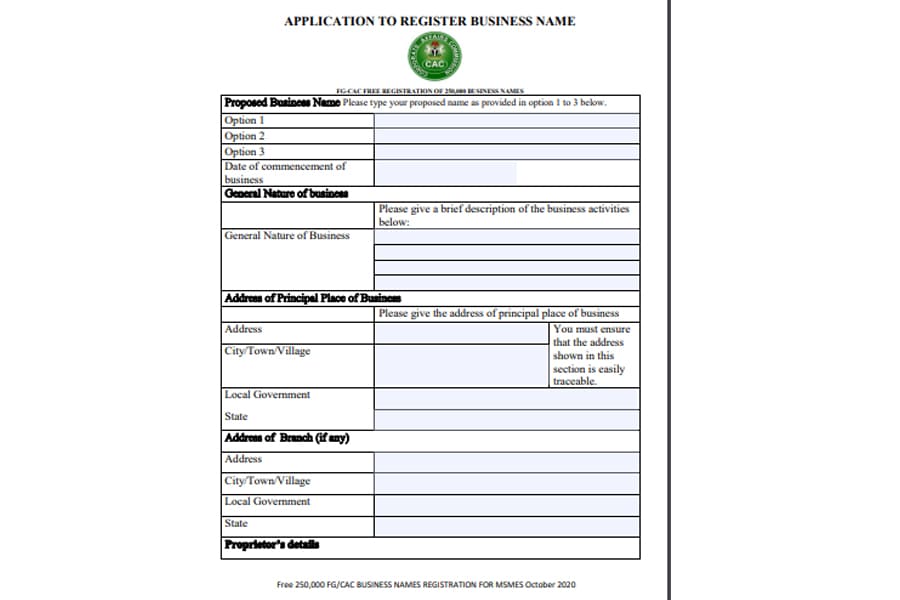Running an ecommerce business in Nigeria is still as tedious as running a physical business. While the growing number of internet users has catapulted online selling, the market is now more competitive due to the rise of e-commerce solutions.
As of 2023, Nigeria is the 40th largest e-commerce market. With this expansion comes heightened legal scrutiny. For instance, failure to register your e-commerce with the Corporate Affairs Commission (CAC) can cost a fine or shutdown.
In this article, you will learn everything about the legal side of ecommerce in Nigeria to protect your business.
The Legal Framework for Ecommerce in Nigeria: An Overview of Relevant Laws and Regulations
The legal framework includes e-commerce registration, tax laws, intellectual property rights, payment platforms laws, and other laws governing the ecommerce space in Nigeria.
Before commencing business activities in Nigeria, you must register with the CAC and the National Information Technology Development Agency (NITDA).
Below are the most important reasons to register with CAC:
- Ease of electronic banking (i.e., opening a bank account) for your business.
- Proof of business authenticity and good reputation.
- Separation of business identity from that of the owner. Where liability arises from the business, the owner will not be held personally liable or responsible.
Also, you will get benefits like easy access to business loans and prevention of law violation.
Also, here is why you need to register with NITDA:
NITDA established the National Electronic Commerce Council (NECC) to organize e-commerce business operations in the country. Thanks to its policies and framework, it facilitates international transactions of every ecommerce in Nigeria.

Source: Nigerian Corporate Registry
Understanding Taxation for Ecommerce in Nigeria: VAT, Income Tax, and Other Considerations
By law, every ecommerce business in Nigeria is governed by the Finance Act 2020 and the Company Income Tax Act 2007.
Below, we will review the laws that apply to the different taxes in Nigeria.
Value Added Tax (VAT) for E-commerce
The FIRS introduced the Online Purchase Tax in early 2020 to deduct 5% VAT for online shopping purchases locally. It is deducted from local bank cards while purchasing an item.
By 2022, the government released Section 30 of the Finance Act to address Sections 10, 14, and 31 of the Act. The new law concerns Nigerians purchasing from non-resident digital companies.
The impact of this law is that citizens will be charged VAT on items purchased from global companies like Amazon. This new law contributes to the growth in Nigeria’s non-oil revenue.
Income Tax Implications
In 2021, President Muhammadu Buhari enacted a Finance Act to enable the FIRS to access the Company Income Tax (CIT) on the turnover of foreign digital companies in Nigeria.
According to the 2021 Finance Act, digital companies with over the set N100 Million Naira turnover must pay 30% as tax. On the other hand, the tax rate for companies with turnover from N25 Million to N100 Million is 20%. In contrast, companies with less than N25 million turnover don’t pay tax.
Nigeria’s government introduced Significant Economic Presence (SEP) for Non-Resident Companies (NRC).
The SEP allows Nigeria as a legal entity to tax the digital NRC if:
- Its digital platform targets Nigerians.
- It delivers over NGN 25 million or equivalent from Nigeria in a year.
Also, if the non-resident company registers a website in Nigeria or uses a Nigerian domain name (.ng).
Other Tax Considerations
There are two types of tax considerations – customs duties and excise duties:
- Customs duties: Only imported goods are charged with customs duties, and rates vary depending on the imported item from 5% to 35% accessed under the Harmonized Commodity and Coding System (HS code).
- Excise duties: Excise duty increased from 20% on June 1, 2022, and now applies to telecommunication services and alcoholic beverages like wines, spirits, beer and stout, cigarettes, and homogenized tobacco.
Intellectual Property Protection: Trademarks, Copyrights, and Patents
The intellectual property rights of a company are the component with the highest value. Below, we will provide more information about the Trademark protection, the Copyright protection, and the Patent protection.
Trademark Protection
The trademark of an e-commerce company is its brand name, logo, and slogan. To acquire exclusive trademark rights, you must register at the Nigerian Trade Marks Registry.
It grants exclusive rights to the trademark for years; you can renew it 14 years later. This step will prevent third-parties from creating a false duplicate of your ecommerce.

Copyright Protection
The Nigerian Copyright Act (NCA) protects your site or mobile application and its contents as copyrightable materials as long as they are your original work.
There is no established requirement to register at NCA, but it is best to notify them when you create an ecommerce business.
Patent Protection
E-commerce platforms in Nigeria can be patented if they meet a wide set of requirements. This patent protection isn’t just about the code; it covers the clever methods and processes behind the software as long as they are well-documented.
Software is expected to be patented if it is innovative and capable of industrial application.
Consumer Protection in E-commerce: Nigerian Regulations and Best Practices for Business Compliance
Your e-commerce business is facing backlash from customers?
Take the following steps for your reputation and personal care:
- Consumer Protection Laws: Your e-commerce platform must comply with Nigerian consumer protection laws like the Federal Competition and Consumer Protection Act 2019. It ensures the protection of consumers, allowing them to obtain the right quality of goods they paid for. Additionally, the Consumer Protection Council Act provides that you must display the return and refund policies while ensuring product description accuracy.
- Quality Control Measures: You must have a system to check if a product is good enough to sell on your platform. Two ways you can ensure this: regularly review stores and partner with trustworthy manufacturers.
- Transparency: Ensure you list the exact features of a product and don’t exaggerate product descriptions to increase sales.
- Terms and Conditions: Create detailed terms and conditions that guide transactions on your platform. It should include refunds and warranties for their conditions.
- Customer Support System: To become one of the best service providers, consider setting up a team that handles disputes and customer complaints.
Other ways to protect your customers include verifying a vendor and providing the necessary education to the customers and vendors.

Data Privacy and Security: The Nigerian Perspective
In Nigeria, the landscape of data privacy and security has been evolving to address the growing challenges in the digital era. As a result, the Nigerian government has specific laws to protect personal data, which we will review below.
Nigeria Data Protection Regulation (NDPR)
The NDPR places emphasis on transparency, consent, and accountability, requiring organizations to implement robust measures to protect individuals’ privacy.
The major responsibility of NDPR includes:
- Regulating the collection, safe keep, management, and control of the Nigerian citizen’s data.
- Setting standards for e-commerce platforms that control the personal data of citizens and residents.
- Allowing the data subject to determine whether they want their data processed for marketing purposes.
- Dictating the penalty for breached Privacy rights.
The Nigerian perspective underscores the significance of aligning technological advancements with ethical considerations to create a secure and privacy-centric digital environment.
Cybercrime Act of 2015
To protect customers from data theft and fraud, the Cybercrime Act was implemented to ensure financial platforms ask each onboarding user for means of identification.
Customers must provide their information before using the media and receiving a payment card.
CBN Consumer Protection Regulation 2019
It’s a subsidiary act under the CBN Act of 2020, which requires financial platforms to uphold data security and confidentiality of customers.
This regulatory framework is designed to ensure the fair treatment of consumers by financial institutions, promoting transparency and accountability in the financial sector.

Payment Regulations and Compliance: Challenges and Solutions
The Central Bank of Nigeria (CBN) regulates online payment processing of products and services. However, the CBN doesn’t directly regulate e-commerce. It governs the payment methods such as payment schemes (i.e., Remitta), Card Schemes, and Payment Terminal Services.
These regulations include:
- Only CBN-approved institutions can serve as issuers during contactless payment.
- Issuers must ensure that the transaction is done with the buyer’s consent.
Also, iIssuers can activate only wallets and accounts with BVN for contactless payment.
Challenges
There has been a rise of payment frauds such as malware, phishing attacks, hacking, and spam emails/links. Additionally, card-not-present (CNP) fraud is predicted to rise by 14% in 2023.
Customers can steal others’ information and card details to make online purchases.
Potential Solution
E-commerce platforms can adopt biometrics, tokenization, or behavioral analysis methods to verify customers’ identities.
They should also encourage customers to use stronger and unique passwords.
Cross-border E-commerce Regulations and Compliance in Nigeria
In the past, citizens used Citibank, Zenith, UBA, and Fidelity debit cards to transact across borders in Africa, the United Kingdom, Germany, South Africa, and the United States. However, these banks have stopped allowing international payments due to lingering forex shortages.
Thankfully, the rise in Fintechs like Chipper Cash has become prominent, allowing Nigerians to make cross-border payments using their USD cards on international platforms.

Advertising and Marketing Compliance
Every social media platform has created policies to ensure that businesses are compliant. Aside from that, Nigeria has also enacted the Advertising Regulatory Council of Nigeria Act of 2022.
The act in question is responsible for the following:
- Promotes local content by banning foreign voice-overs and models in Nigerian advertisements.
- Ensures that every advertisement is approved before publication.
It also settles disputes through the Advertising Arbitration Panel amongst shareholders.
Closing: Building Trust With Local Customers
If you use an ecommerce platform, the chance of partnering with other vendors or businesses is relatively high. Therefore, you must comply with the earlier-mentioned laws and register with CAC, which is the first step to building trust.
Having non-disclosure agreements (NDA) to protect your e-commerce and relationships is one of the best alternatives. Whether partnering with a distributor, agency, or contractor/freelancer, confirm the governing law before you begin operations. This step ensures you are delivering quality to consumers, and as a result, they will trust you.
Frequently Asked Questions
What are the laws regulating e-commerce in Nigeria?
The most important laws that are regulating the e-commerce market in Nigeria are:
- The Federal Competition And Consumer Protection Act (FCCPA);
- Constitution Of The Federal Republic Of Nigeria 1999 (As Amended);
- Cybercrimes (Prohibition, Prevention, Etc.) Act 2015;
- Evidence Act 2011;
- Companies And Allied Matters Act 2020.
What steps should I take to establish an existing/new business online?
The process includes incorporating your e-commerce company with the CAC. Following the incorporation, you should register it with the NITDA, Internal Revenue Services, and other relevant bodies.
Next, you should set up the site and register your domain name. For example, if the domain name includes .ng, you must register with the Nigerian Internet Registration Association (NIRA). Thirdly, set up a secure payment platform and draw up the Privacy policy and terms and conditions (T&Cs).
Should I pay VAT on every product I buy?
No, you don’t have to pay VAT on every good you purchase through an e-commerce platform in Nigeria. Examples of goods exempt from VAT include medical and pharmaceutical products, educational materials, fertilizers, Basic food items, and baby products.